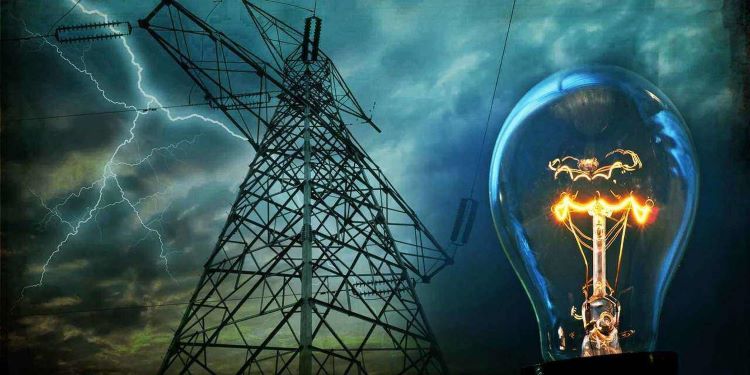Key Features
Electricity Contract Enforcement Authority:
- The Draft Bill sets up the Electricity Contract Enforcement Authority (ECEA).
- ECEA will consist of:
- a chairperson,
- two or more judicial members, and
- three or more technical members.
- ECEA may have multiple benches, and every bench must have at least one judicial member and one technical member.
- ECEA will adjudicate on matters involving the performance of contracts regarding the purchase, sale, or transmission of electricity between a generation company and other licensees.
- It will not adjudicate over any matter related to regulation or determination of tariff, or any dispute involving tariff. Such matters will continue to be adjudicated by concerned SERCs and CERC.
Common selection committee to recommend appointments:
- The Act provides for a selection committee in each state to recommend appointments to the respective SERC, and separate committees to recommend appointments to CERC and the Appellate Tribunal for Electricity (APTEL).
- The Draft Bill proposes a common selection committee to recommend appointments to all SERCs, CERC, APTEL, and ECEA.
Cost-reflective tariff:
- The Act provides that the tariff for the retail sale of electricity should progressively reflect the cost of supply.
- The Draft Bill amends this to require that tariff must reflect the cost of supply.
Government subsidy:
- The Act provides that the state governments may provide subsidy to consumers.
- The Draft Bill requires that tariff for the retail sale of electricity must be determined without accounting for the government subsidy.
- The Act provides that state governments must pay the subsidy in advance to the distribution licensee or any other person concerned to implement the subsidy.
- The Draft Bill removes this provision and requires that subsidy must be provided directly to consumers.
Regulation of cross-subsidy
- The Act requires the cross-subsidy in tariff to be reduced progressively.
- The Act empowers the regulatory commissions to make regulations regarding the manner of reduction of cross-subsidy.
- The Draft Bill removes the powers of the regulatory commissions to make these regulations.
- It requires that cross-subsidy should be reduced in the manner provided in the National Electricity Tariff Policy prescribed by the central government.
Sub-contracting of power distribution activities:
- The Act empowers a distribution licensee to authorise a Franchisee to distribute electricity on its behalf.
- The Draft Bill adds that a Franchisee will be appointed with the information given to the SERC.
- The Draft Bill also introduces another entity named Distribution Sub-Licensee which can be authorised by a distribution licensee to distribute electricity on its behalf.
- Prior permission of SERC will be required for authorising a Sub-Licensee.
- No separate license will be required for operating as either a Franchisee or a Distribution Sub-licensee.
Functions of National Load Despatch Centre (NLDC):
- The Act provides for load dispatch centres at state, regional, and national level.
- The load dispatch centres are responsible for optimum scheduling and despatch of electricity in their respective jurisdiction.
- Under the Act, the central government is empowered to prescribe the functions of NLDC.
- The Draft Bill adds that functions of the NLDC will include:
- monitoring of grid operations,
- exercising supervision and control over inter-regional and interstate transmission network,
- carrying out real-time operations of the national grid.
- The Bill also empowers NLDC to issue directions for ensuring the stability of grid operation and safety and security of the national grid. Such directions will be binding on various entities involved in the operation of power systems including generators, and regional and state load dispatch centres.
Payment Security Mechanism:
- As per the Act, the regional and state load dispatch centres (RLDCs and SLDCs) are responsible for scheduling and despatch of electricity from the generator to the distribution licensee.
- The Draft Bill adds that the supply agreement between a generator and a distribution licensee may require adequate payment security.
- The Bill prohibits the RLDCs and SLDCs from dispatching electricity if adequate payment security, as agreed in the contract, has not been provided by the distribution licensee.
National Renewable Energy Policy:
- The Draft Bill empowers the central government to formulate a National Renewable Energy Policy in consultation with state governments.
- The policy will be aimed at promoting renewable sources of energy.
- The central government may prescribe a minimum percentage of purchase of electricity from renewable and hydro sources of energy.
Renewable Purchase Obligation:
- The Act empowers the SERCs to mandate a percentage of electricity purchase from renewable sources known as Renewable Purchase Obligation (RPO).
- The Draft Bill adds that SERCs will specify RPO as may be prescribed by the central government.
- The Draft Bill also provides for certain penalties for non-compliance by licensees in meeting RPO.














